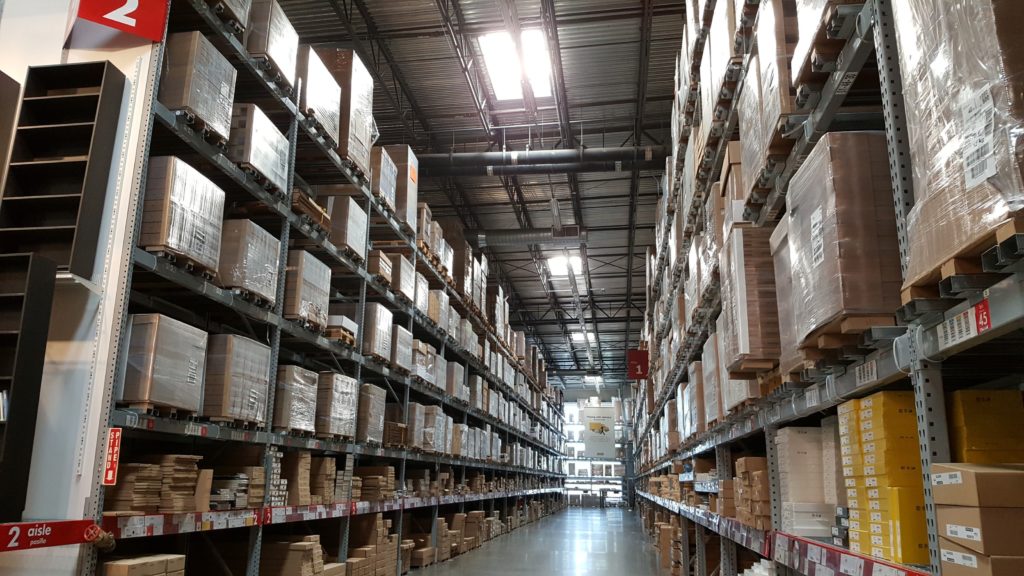
If your company ships temperature-sensitive products, such as perishable food and medicines, you’ll have to find the right facility to house them. A critical part of the supply chain, it is used to store grocery products that can’t survive in normal storage conditions. Choosing the right facility is primordial if you don’t want to end up with ruined inventory. Keep on reading for a complete cold storage guide that will tell you everything you need to know.
Why should I use a cold storage warehouse to store my products?
While you may keep your products in your own cold storage room if your company has one, it will gradually get more challenging as your company grows. The bigger the company, the wider will your customer base be, the more products you’ll be selling and the more cramped your cold storage room gets. So, even though you can get by with a small storage room when your business is small, eventually your products will no longer be able to fit inside, and you’ll have to start looking for other options.
Do cold storage warehouses offer only storage services?
No. Far from it! Cold storage warehouses do not only store your products but also offer refrigerated courier vans for the transportation of goods. However, if you use your own cold storage room, you’ll need to hire courier vans yourself. Cold storage warehouses typically employ people to process, package, and ship those goods through refrigerated couriers. These transports ensure that the products are constantly exposed to the same temperature throughout the transit.
Having a set temperature ensures that the foods do not spoil and develop mold, but stay fresh, taste the same and last longer. If you sell fresh fruits and vegetables, you’ll benefit from this type of service because the better the conditions and temperature under which the foods are kept, the less likely it is that the food would go off and cause food poisoning.
Since providers handle the transportation and shipping of the goods kept in their warehouses, their clients don’t have to worry about these issues anymore. Hence, if you decide to work with such companies, you will be able to focus wholeheartedly on growing your business and improving customer service.
What are the types of products kept in a cold storage warehouse?
Contrary to popular beliefs, perishable foods such as meats, fruits and vegetables are not the only types of products that are stored in this type of warehouses. Below is a list of the other types of products that need to be stored in a cold environment to stay in good condition:
Flowers and Plants
- Cut flowers that will be used in a bouquet will last longer if they are stored in a cool environment.
- The same can be said for seeds. The cold environment will keep the seeds from withering.
Pharmaceutical products

- You may need to store some types of medicine in a cold storage warehouse to avoid potential contamination.
- Some medical supplies are also preserved in cold temperatures for later use.
Artwork

- If paintings, usually old pieces, have to be stored for a long period of time, they need to be kept in a regulated environment in order for the paint to be preserved. The storage facility will monitor the temperature, so the colors do not fade.
Films
- Although not as popular anymore, camera films have to be stored in cold temperatures. And a temperature-controlled storage facility will keep the film from getting damaged.
What factors should I consider before hiring a cold storage warehouse?
Humidity and moisture
Humidity levels and moisture buildup can easily affect products. While some goods require humid conditions, others can’t be stored in such an environment without adverse effects on the quality of the products.
To assess if the facility is appropriate for your products, you can ask them if they use dehumidifiers or if they check regularly for excessive moisture and mildew.
Cleanliness
Ensure that the provider respects all sanitation requirements, establishes clear guidelines for pest control and follows recommended methods to protect stored products from bacterial growth.
It may also be a good idea to check if they reject contaminated loads from other shippers.
Their backup plan in case of disruption
A contingency plan needs to be set up in case of disasters such as power outage, breakdown of the cooling system, and machinery failure. A good storage warehouse will already have one laid out and should be able to explain it to you.
If they don’t have one, you may want to look for another provider.
Inventory counts
If the provider is unable to give accurate inventory counts, you may end up with a significant number of ruined products. This is due to the limited shelf lives of most goods. The supplier has to be able to convince you of their accuracy through its proven track record and by displaying proofs of efficient record-keeping.


